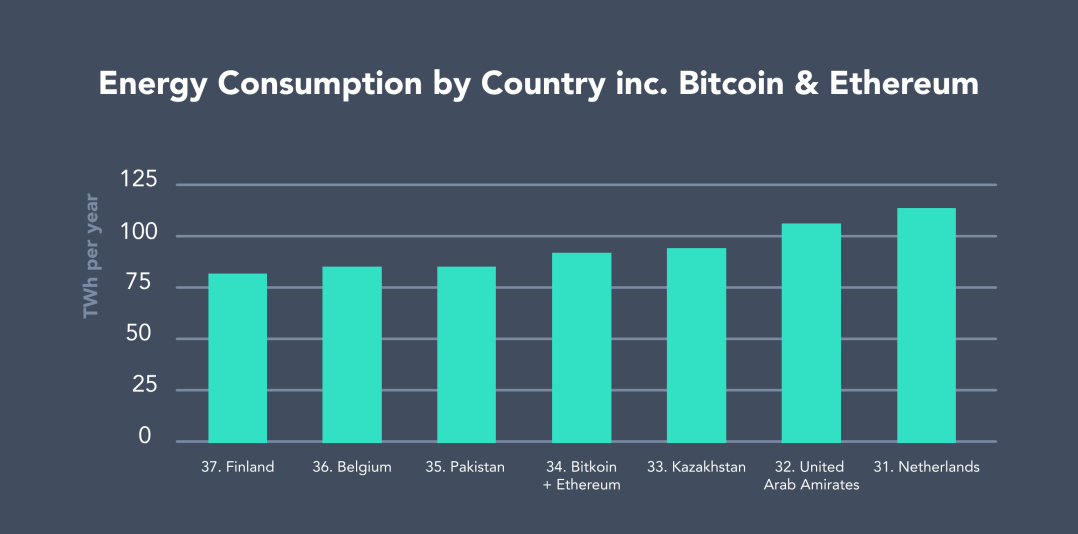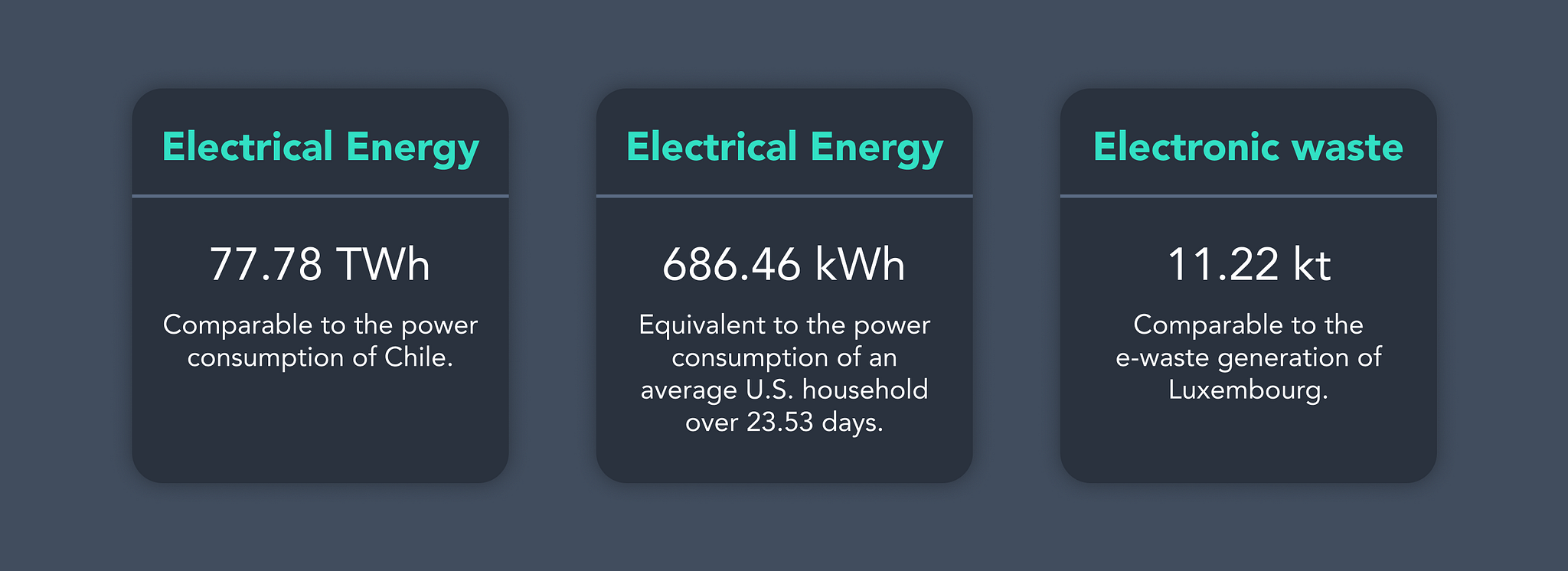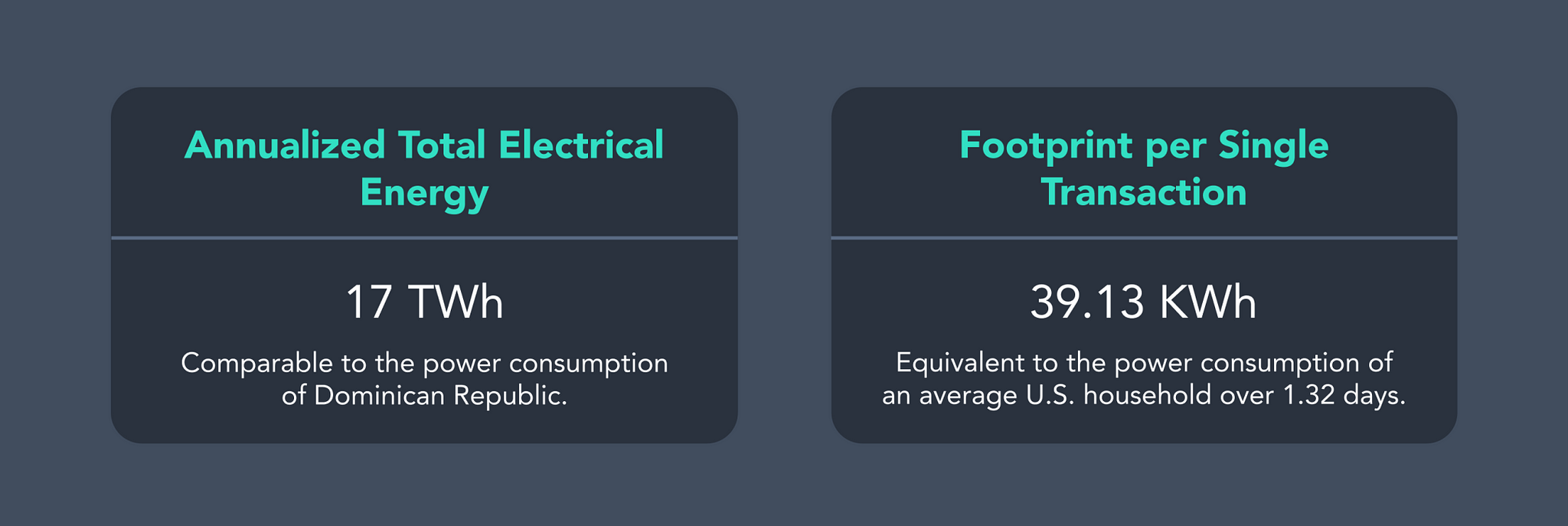Ethereum’s Transition to Energy Efficient Consensus
Etheneum's transition to Proof of Stake (PoS) is a massive move for the network, one that will have far reaching effects.
Since network inception, scaling while accounting for energy-related challenges has always been a part of Ethereum’s vision. With Eth2, Ethereum is set to reduce energy consumption by up to 99% — a significant improvement for the blockchain — and larger global energy reduction efforts alike.

Blockchain’s Energy Problem
The largest energy-related problem facing blockchain today is Proof of Work (PoW) consensus — forming the foundation of Bitcoin and many other networks including the Ethereum legacy chain.
Securing PoW networks is increasingly energy-intensive as miners must compete against each other to solve algorithmic problems (hashing) and produce emerging blocks. Their aggregated efforts translate to exorbitant electrical energy usage, consuming more power than many countries on an annual basis and generating an exceedingly large carbon footprint.
When added together, the energy consumed by miners maintaining Bitcoin and Ethereum has reached 94.78TWh/y. If Bitcoin and Ethereum were a country, together they would be the 34th highest energy-consuming nation in the world.</strong >

Though already staggeringly high on the list, this position will increase as long as the networks continue to scale. As the chains grow in size, so to the power needed to calculate each new block.</strong >
The worst part is that this is energy wastage for the sake of energy wastage</a >. Only one miner will eventually affirm the next block, and thus the hash power used by competing miners is rendered useless.
Some argue that much of this consumption is associated with renewable energy sources and really isn’t all that bad. But the availability of renewables to sustain this level of consumption is not currently realistic</a >. In time, the prominence of green energy may save PoW, but the likelihood of this happening while the world recovers financially from COVID, and institutional related energy advancements stifle, has certainly dimmed.
If you take the two networks side by side, Bitcoin alone is in 39th place for annual expenditure, at 77.78TWh/y with each transaction consuming the equivalent amount of power as a US household for 23 and a half days! Not to mention the electronic waste that is produced from depreciating mining rigs, comparable to the yearly generation of e-waste from the country of Luxembourg.

Eth1 on the other hand consumes far less than Bitcoin at 17TWh/y, dropping its consumption down to the 80th spot when compared to national expenditures. While Eth1’s algorithm requires significantly less computing power than Bitcoin</a >’s, each Eth1 transaction eats up more energy than a US household in an entire day</strong >.

As Vitalik sees it, Ethereum in its current state may consume more resources than it provides in societal benefits — which is saying a lot for the foundations of DeFi. Although Eth1 wastes significantly less energy than Bitcoin (60.78 TWh/y less to be exact), its PoW consensus consumes far too much</a > as it is, and upgrading to solve for it has been planned since network inception.
The transition to Eth2 introduces Proof of Stake (PoS) to the world’s second-largest and most popular blockchain and solves for its energy-related challenges. PoS has been around for quite some time and continues to proliferate in new and emerging projects but the impact that it will have on Ethereum (and DeFi) is set to be quite impressive.
In Eth2, validators, rather than miners secure the network by taking turns performing network duties assigned in a pseudo-random fashion by the blockchain. With this alone, the race to compete and consume has been eliminated.
When the merge of Eth1 and Eth2 occurs in the next couple of years Ethereum is headed towards a 99% reduction in energy consumption — a reduction that will almost take the network off the chart when compared to the expenditure of nation-states. In addition to addressing scale, security, and decentralization, Eth2 will set a precedent for emerging technologies and will make a significant impact on global conservation efforts.